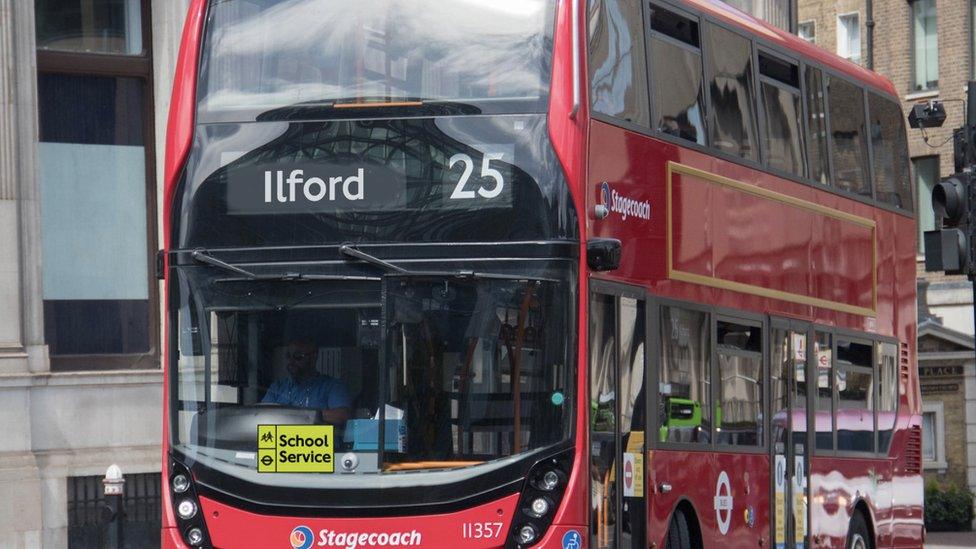Back to school: What will happen if someone tests positive for coronavirus?
- Published
- comments
Coronavirus: How will schools look different?
Pupils right across England and Wales are returning to the classroom this week.
And lots of students in Scotland and Northern Ireland have already seen their schools reopen.
Primary and secondary schools have put in loads of important measures to help prevent the spread of coronavirus.
But what will happen if someone at school gets a positive test for Covid-19?
What if there's a positive test?
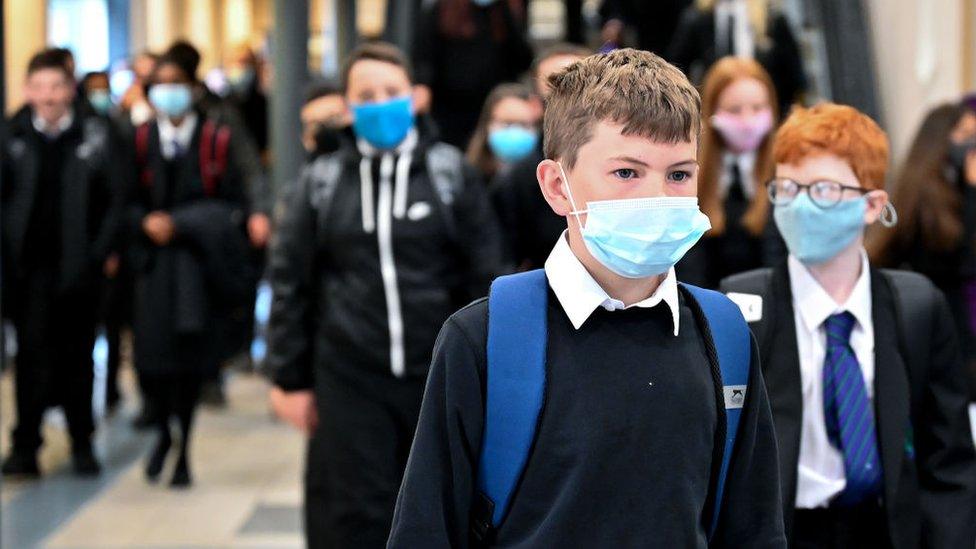
Secondary school pupils now have to wear masks where social distancing isn't possible
The government in England has some guidance on what to do if his happens.
If it looks like a pupil or staff member could be infected, they'll need to be tested to confirm whether or not they have the virus and school lessons for the rest of the pupils will carry on as normal.
If a person ends up testing positive, they'll be required to self-isolate and will also be contacted by the NHS test and trace system team to find out who else they've been in recent contact with.
What if you've been in contact with someone who has it?
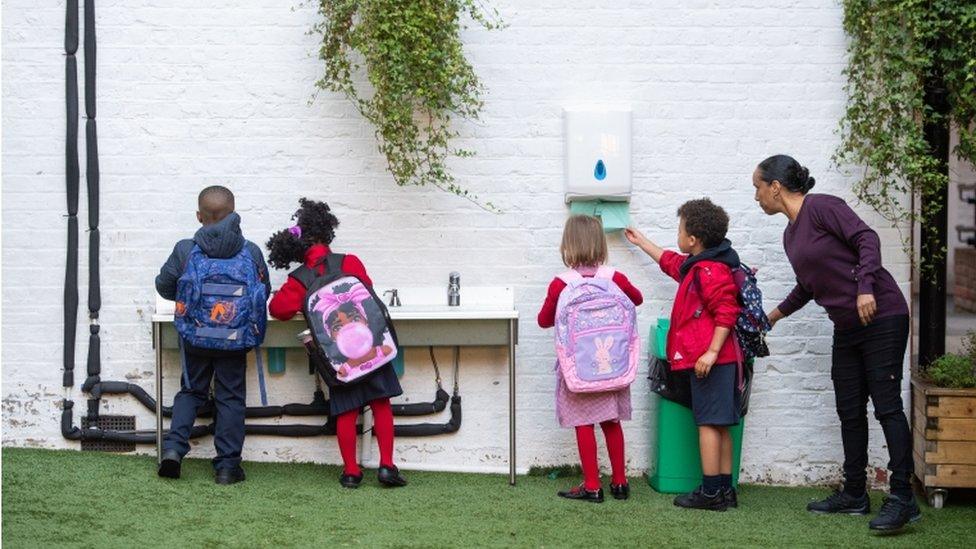
Schools have had to put lots of new measures in place including more frequent hand washing
If a pupil or staff member has been in contact with a person who has Covid-19, they'll need to self-isolate for 14 days to help prevent the virus spreading further. If any students are sent home they'll continue with their studies online - if they're able to do so.
What help will schools have?
There'll be loads of advice on hand from local health protection teams if someone is infected or if there's a suspected outbreak.
If schools have two or more cases, they'll need to continue working with their local health protection team to see if any additional action needs to be taken.
Similar measures are in place for Wales, Scotland and Northern Ireland.
What are schools doing to prevent the spread?
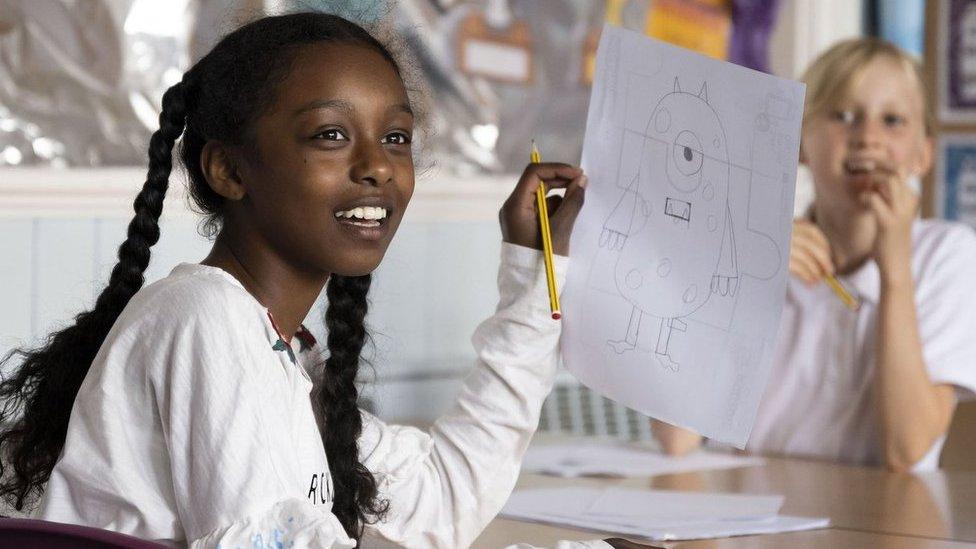
Schools are limiting the amount of contact pupils have with one another, making sure everyone follows social distancing rules, getting students to wash their hands regularly and making sure people wear face masks where when and where they're needed.
They're also implementing 'bubbles'.
This is one of the main recommendations, meaning you spend time with the same people all week, and do not get to spend time with children in other 'bubbles' at school.
In primary schools, it's expected children will stick to their class 'bubbles' and in secondary schools, students will stay in their year bubble, which could be up to 240 people.
It is likely 'bubbles' will be given different break, drop-off and pick-up times, spaced throughout the day.
- Published29 August 2020
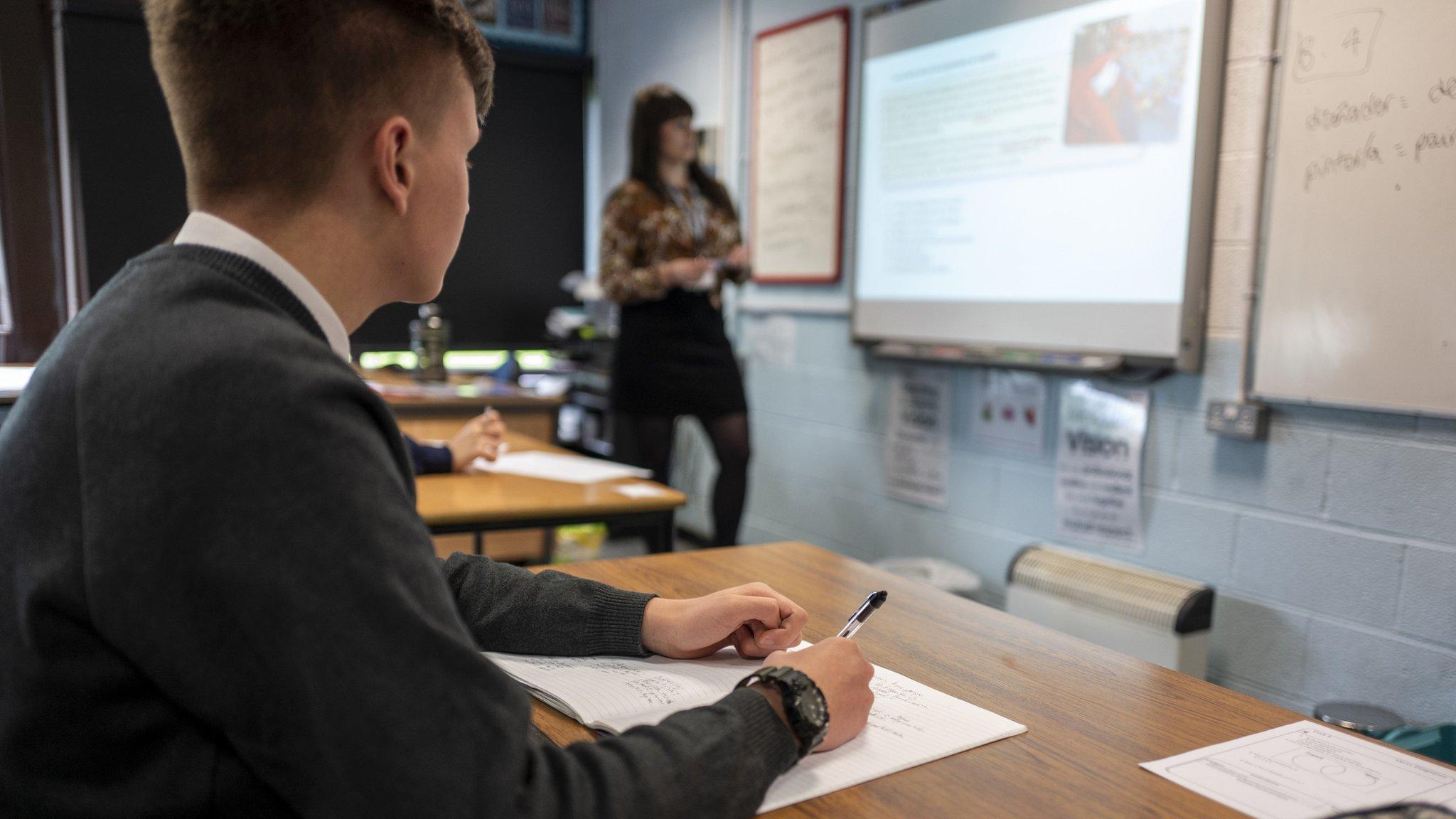
- Published1 June 2020
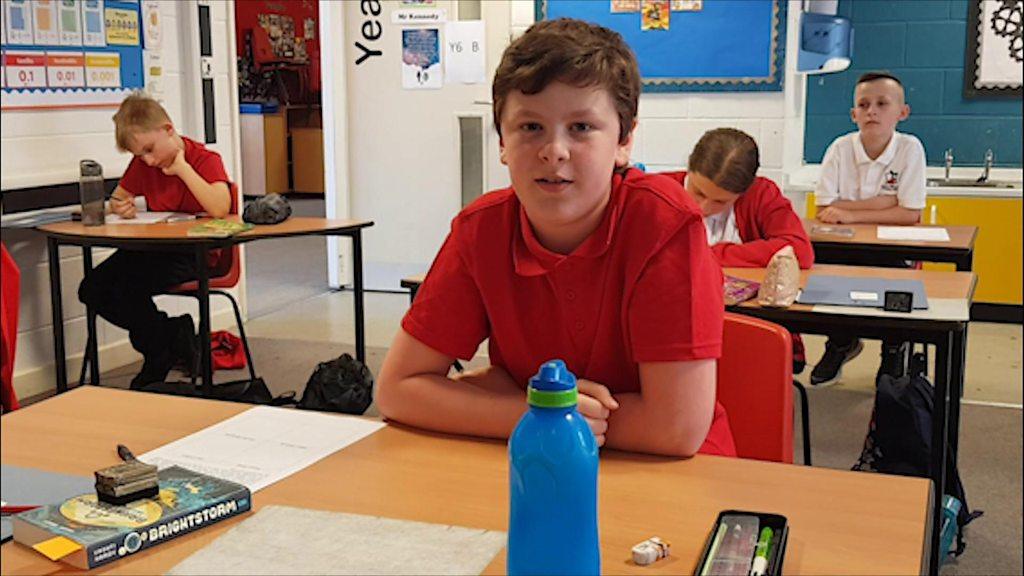
- Published28 August 2020
